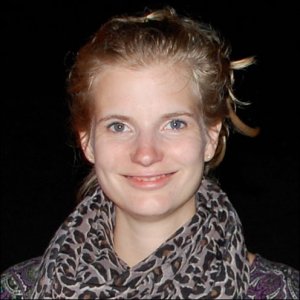Pernille Ripp on The Elusive Hunt for the Goal of Education
Your content has been saved!
Go to My Saved Content.Editors Note: Our guest blogger today is Pernille Ripp, a fourth grade teacher in Middleton, Wisconsin.
"So tell me, what is your goal of education?" It's a question asked in interviews throughout the globe as nervous candidates vie for that elusive teaching job. Well-researched, with philosophy of education chosen, the candidates offer answers that they hope will score high on the interview rubric. Successful words often include "kids," "learning," "citizen" and any other buzzwords floating around the education community. Yet ask a veteran teacher, or even a semi-veteran, and they may come up with an answer that would not fit into any interview rubric, knowing full well that the goal of education cannot just be summed up in one sentence.
So really, as a community we must ask ourselves: Is there such a thing as a common goal?
The question of what is the common goal of education was the recent topic of #edchat and one that I hesitated to participate in. I love the forum, however, this topic seemed listless to me. Isn't the goal of education to teach? Well, maybe not, if you ask teachers around the world.
Some people say that the goal is to shape citizens, or to create lifelong learners, or even to be guides. All wonderful goals, but can any one of them claim to be the ultimate goal for us all? The one constant in the discussion is just how different we all feel the goal of education is. Some people need the goal to be retention of information so that their school is not closed. Others need kids to perform better so jobs are not lost. And still others need to prove just why the community should support their school with another referendum so that they can buy new textbooks. I teach in a school where we have wonderful community support, as well as above-average academic standing; therefore my goal of education is vastly different than most, and then again, maybe not.
My goal is simple: It is to learn.
Not just learn about the topics, or the tests, facts, assignments, how to get from point A to point B, but instead how to learn and how to love learning. Granted, I did not love school as a child. My classroom teacher hated me for being different and locked me in a closet on a summer day, no joke. Nor did I love the homework that seemed pointless and unrealistic, or the parent-teacher conferences where my mother would be told that I did not apply myself. Yet, my mother continued to believe in me as a learner, knowing that I did love learning; just not the way the school presented it. Reflecting on it now, I recognize that there was no goal that included me in it.
So when we discuss a common goal of education I liken it to the tale of the Loch Ness Monster. Some people claim to have seen it, some people pursue it relentlessly, and many hope in their quiet minds that maybe our world is magical enough to really possess such a thing. I agree that if we had a common goal of education, it would make it much easier to participate in the debate.
But how would that play out?
You could use that goal to twist and mold it into whichever educational philosophy you choose. Policy makers and big talkers could point to the goal and use it to push their way of thinking onto unsuspecting teachers. One single goal could mean one single voice in the debate. And yet, that is exactly what we, as educators, fight against every day. We fight against complacency and average pursuits. We fight against one way of learning, of teaching, because we know we will not reach all of our students that way. We fight for our classrooms not to be framed by one sentence since we are multidimensional teachers who bring vast arrays of learning into our rooms and would prefer to stay that way.
So the goal of education can be many things.
You may choose to answer the question in whichever way you want, because ultimately you have to believe in the goal that you choose. I cannot tell you what goal will work for you, that is your own path to explore. I just hope that you realize that it is okay to choose a different goal every day, every topic, every student. After all, we are the shapers of the future and not just people hoping against all odds that true learning is not just a myth but something we participate in every day. So explore your goals, change them, turn them on their heads, and use them for inspiration. But most of all do not let them become inflexible.

I am a 4th grade teacher in Middleton, Wisconsin, proud techy geek, and honest to a fault. Creator of the Global Read Aloud Project and believer in all children. I have no awards or accolades except for the lightbulbs that go off in my students' heads every day. Some say that I have a great life and I agree! Follow Pernille on Twitter @4thGrdTeach and her blog can be found at mrspripp.blogspot.com.